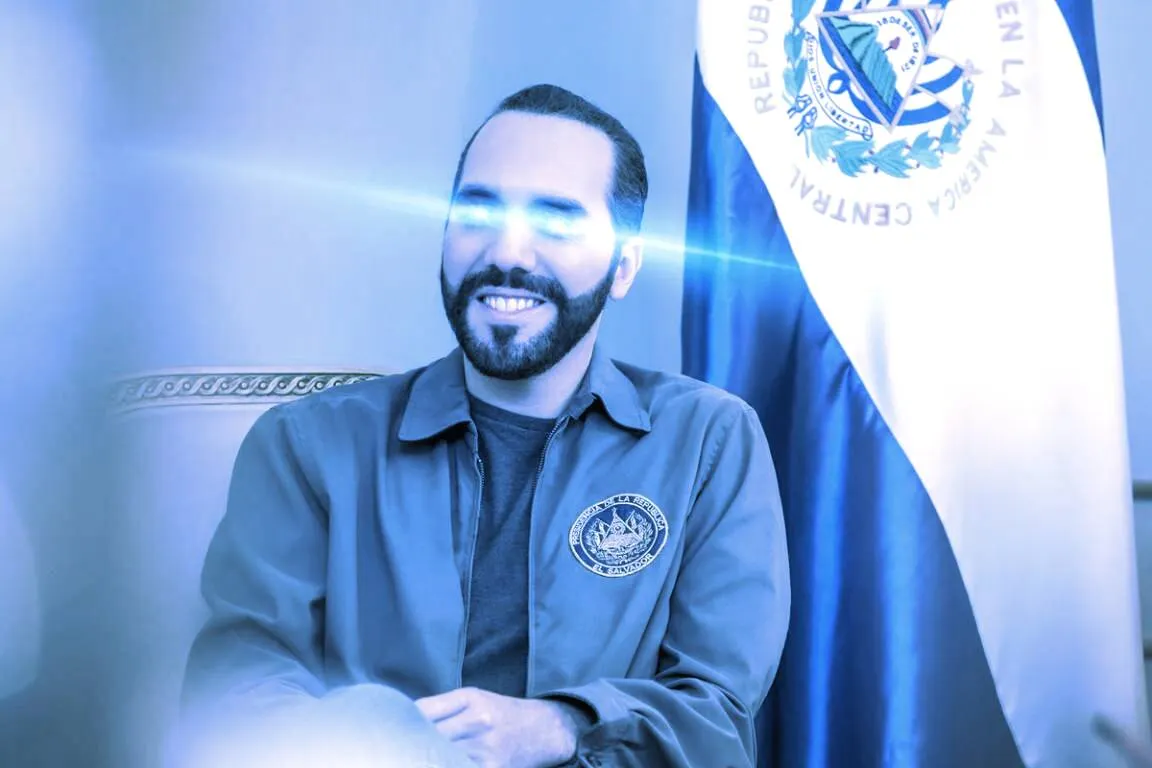About the author
Aubrey Strobel is Head of Comms at Lolli, a Bitcoin shopping rewards app. She has written guest posts for NBC News, CoinDesk, and Coin Telegraph. The views expressed here are her own and do not necessarily represent those of Decrypt.
On Wednesday night, Nic Carter of Castle Island Ventures opened a Twitter Spaces chat room to discuss the passage of El Salvador’s bill to adopt Bitcoin as legal tender.
What followed was a bona fide Exhibit A in the crypto social media zeitgeist: The president of El Salvador, Nayib Bukele, and his brother and campaign manager, Karim Bukele, spontaneously joined the virtual room, which was populated with more than 23,000 users. Bukele spent a full hour in the chat room talking to Bitcoiners—while the vote to pass his Bitcoin bill was taking place.
Unlike a traditional press conference, the room allowed ordinary people to engage Bukele directly, rather than filtered through the news media. The politician answered questions about the substance of the bill and described Bitcoin’s future in El Salvador, including the potential to tap the country’s volcanoes for zero-emission Bitcoin mining operations.
President Bukele’s surprise presence and contributions in the Twitter chat perfectly displayed the defining cultural shifts of our age: People are increasingly attracted to the decentralization of information and power, and tech tools that level the playing field to equalize opportunities for accessing information. Many people (especially young people, but not only them) harbor deep aversions to institutional gatekeeping—aversions that the crypto boom has brought to the fore. Social media and Bitcoin are two of the most powerful examples of these shifts playing out in our age and draw their growing power from the same set of values, having both been incubated, in their adolescence, by the circumstances of the past decade.
Social media has partially done away with the public’s traditional reliance on the news media for their information. Bitcoin, similarly, is founded on the critical importance of decentralization in building a globally accessible financial system. A virtual stage on Twitter, hosted by a Bitcoin VC, was thus a deeply fitting space for Bukele to discuss his plans to democratize access to capital in a country where over 70% of the population does not have a bank account. A move that could be considered surprising by a leader who has been criticized for authoritarianism.
The question both Bitcoin and social media are answering is: Do we really need an intermediary for this? Social media, while undoubtedly still ruled by private interests, vulnerable to censorship, and thus far from completely comparable to Bitcoin, still feels like a decentralized experience and a decisive break from the traditional modes of how people have historically received information. There’s good reason why new platforms like Clubhouse and Twitter Spaces have been particularly popular with crypto people.
It’s no coincidence that Bitcoin and social media both move the nexus of power from a traditional, central arbiter (in Bitcoin’s case, a central bank; in social media’s, a media company) to the people. Both are products born of the same historical moment: the 2008 financial crisis.
The creation of Bitcoin was, more or less, a direct response to the financial crisis. In the Bitcoin white paper in 2008, Satoshi Nakamoto described the problem with conventional fiat currency as an issue of “all the trust that's required to make it work.” In relying on fiat currency, we trust a central bank not to debase our currency, and banks to hold our money without compromising it, yet they frequently act in ways contrary to our interests. By creating a decentralized, trustless currency, Nakamoto created the first currency of truly unshakeable integrity.
Social media, of course, predates 2008, but at that time the top social media websites were Blogged, MySpace, WordPress, and a young Facebook—a far cry from the current landscape. Today, platforms like Twitter and YouTube are places where millions can be heard, where access to power and information is essentially equalized. Much like the Bitcoin blockchain, social media platforms are nothing without the oversight and contributions of the people on it–despite, of course, the key difference that the latter are owned by private companies.
Hotbeds for idea sharing like Reddit have served as parlors for open discourse about stocks (or stonks), cryptocurrencies and business. The connectivity of the internet has served as the most powerful weapon against the traditional exclusivity of the financial markets, giving rise to powerful, united fronts of retail investors, changing the way markets move, and redefining who moves them. The recent meteoric rise of investing activity on digital trading platforms, alongside the GameStop stock rally and continued popularity of other meme stocks have made it abundantly clear that investing is no longer just Wall Street’s game.
Now the radical transparency of the internet has set the bar for what people expect of their money. Bitcoin is a way to resolving the friction and frustration resulting from modern scrutiny of our legacy financial systems. And its success in overhauling these systems will be in large part due to social media, which has fanned the flames of Bitcoin’s success.
To those who joined a digital room with 23,000 people across the world directly tuning in to hear El Salvador President Bukele speak, the innate value of a currency that allows equal access and opportunity to capital makes intuitive sense. Crypto skeptics like to sneer at the in-jokes and memes of Crypto Twitter, but that same ecosystem shows off the obsessive shared passion Bitcoiners have for the subject.
We can’t predict Bitcoin’s price to come in the next few days, months or even years. But few would bet against the continuing influence of social media. This generation’s strongest cultural values are increasingly aligned with the principles underlying Bitcoin. And that should signal that the bull run is far from over.

